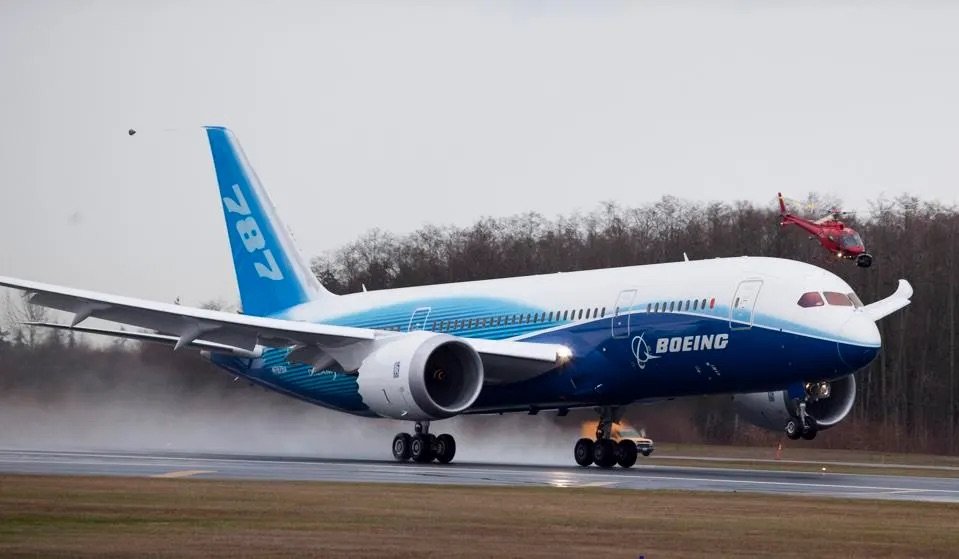ANALYSIS | Boeing Faces Turbulent Trouble
Photo Credit: Getty Images
Aircraft manufacturer Boeing has recently found itself plagued by a series of controversies and safety lapses that have raised serious questions about the company’s manufacturing practices and corporate culture.
At a US congressional hearing on Apr. 17, whistleblower Sam Salehpour, an engineer at Boeing for over a decade, expressed concerns about ignored safety concerns. Salehpour highlighted an issue with gaps within key sections of the 787 Dreamliner, affecting over 1,000 jets currently in service.
These issues could potentially lead to failure in the critical infrastructure of the planes. Salehpour also alleged that employees (including himself) received threats from superiors when trying to sound alarms. “I have even been subjected to threats of violence from my supervisor after I attempted to discuss the problems in a meeting on April 9, 2023,” he explained to Congress.
In January 2020, Boeing suspended all 737 production following two fatal crashes within two years. Both killed everyone onboard: a Lion Air MAX plane crash in Indonesia in late 2018 that killed 189 people onboard, and an Ethiopian Airlines MAX crash in 2019 that killed 157 people onboard. According to Reuters, this was its biggest assembly-line pause in 20 years. The company found that the two crashes were due to defects in the automated flight control software, which was activated at the wrong time.
September 2020 saw the end of an 18-month-long investigation by a US House of Representatives panel, which concluded that Boeing had failed in their design and in being fully transparent with the Federal Aviation Administration (FAA). The following November, however, the FAA allowed Boeing 737 Max planes to fly again. Shortly after, the European Union Aviation Safety Agency also approved the MAX's return to service in European airspace. These two decisions ignited debate and controversy. By August 2023, Boeing faced yet another setback when it encountered a supplier quality issue with 737 Max planes — there were improperly drilled holes on the aft pressure bulkhead made using an automated drill.
In January, an Alaska Airlines 737 MAX 9 experienced a door plug blowout mid-flight, leading to the grounding of all MAX 9 aircraft for investigation. In February, the National Transportation Safety Board published a preliminary report revealing that the Alaska Airlines plane was missing four key bolts, resulting in the door plug blowout. The findings revealed lapses in the company's manufacturing quality control.
In March 2024, a wave of incidents added to the problems Boeing was already facing. A tire of a Boeing 777-200 departing from San Francisco to Japan loosened and fell off during takeoff. In Portland, Oregon, a Boeing 737-800 was forced to make an emergency landing due to fumes in the cabin. Additionally, a missing panel on yet again another Boeing 737-800 was discovered during a post-flight inspection.
Boeing's recent history of safety incidents and lapses in aircraft quality have brought increased scrutiny to the company's manufacturing practices. Boeing's cost-cutting measures may have contributed to the erosion of its manufacturing standards and quality control processes. In his testimony before the Senate panel, Salehpour said that Boeing should be held accountable and demanded an end to the company’s culture that currently prioritizes profit and speed over safety.
Dave Calhoun, CEO of Boeing, and Larry Kellner, chair of Boeing’s board of directors, have since announced that they will step down from their respective roles. These high-profile resignations amid an administrative overhaul of the manufacturers’ management could spell trouble for the company’s future. Boeing now has to fight to repair its reputation following the many PR nightmares during Calhoun’s four-year term as CEO.
"Unless action is taken, and leaders are held accountable, every person stepping aboard a Boeing aeroplane is at risk," executive director of the Foundation for Aviation Safety and former Boeing engineer Ed Pierson said during his testimony. “This is a criminal cover-up.”

